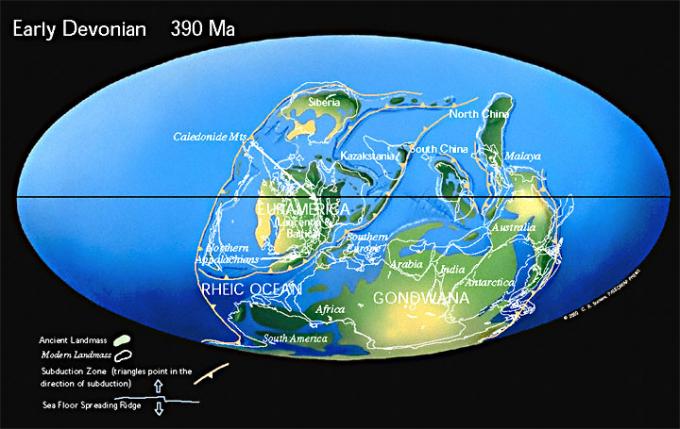Devonian
The Devonian is a geologic period and system of the Paleozoic Era spanning from 416 to 359.2 million years ago. It is named after Devon, England, where rocks from this period were first studied.
During the Devonian Period the pectoral and pelvic fins of lobe-finned fish evolved into legs as they started to walk on land as tetrapods around 397 Ma. Various terrestrial arthropods also became well-established.
The first seed-bearing plants spread across dry land, forming huge forests. In the oceans, primitive sharks became more numerous than in the Silurian and the late Ordovician, and the first ray finned and lobe-finned bony fish evolved. The first ammonite mollusks appeared, and trilobites, the mollusc-like brachiopods, as well as great coral reefs were still common. The Late Devonian extinction severely affected marine life.
The paleogeography was dominated by the supercontinent of Gondwana to the south, the continent of Siberia to the north, and the early formation of the small supercontinent of Euramerica in between.
Source: http://en.wikipedia.org/wiki/Devonian | ||
Virtual museum of the Czech Geological Survey, www.geology.cz, (C) Czech Geological Survey, 2011, v.0.99 [13.12.2011]


![[ENG]](img/vlajka-cr.gif) Česky
Česky 
